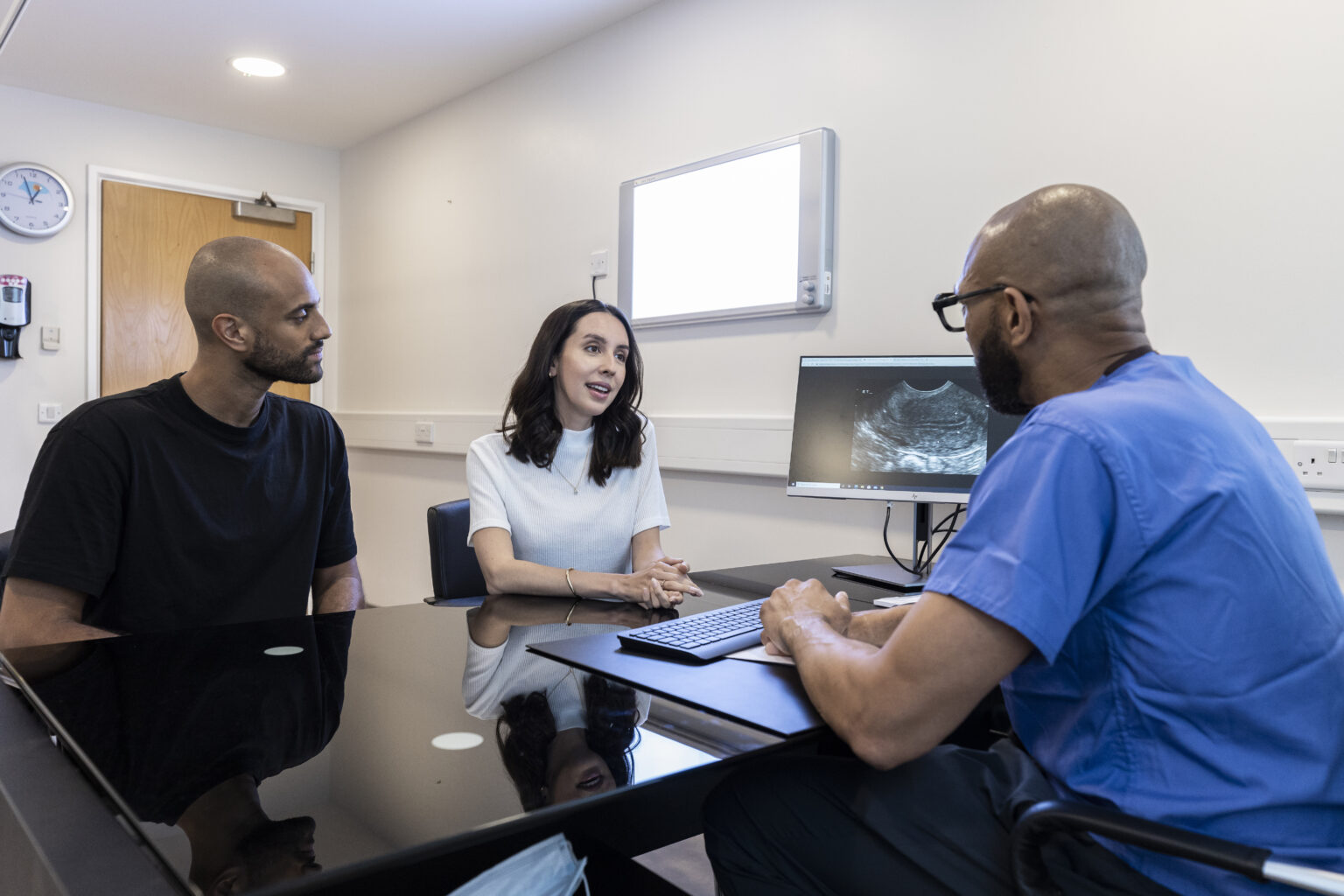Contact number: 020 7806 4060
What is a smear test?
Cervical screening, commonly known as a smear test, is an important test that is used to detect early changes in cervical cells that could potentially develop into cancer. During the test, a small sample of cells is taken from your cervix, which is then checked for human papillomavirus (HPV). There are over 100 different types of HPV, which can be divided into low risk and high risk. If someone has high risk HPV, the virus is more likely to cause changes to the cells of the cervix, which can sometimes lead to cancer.
Regular smear tests offer peace of mind, and the chance of early detection if HPV or abnormal cells are detected. By identifying these changes early, cervical cancer can be prevented through treatment before it has a chance to develop. Cervical cancer is the fourth most common cancer in women in the UK with over 3,200 women diagnosed each year.
At St John & St Elizabeth Hospital, you can get fast access to private cervical screening at one of London’s leading hospitals. Our experienced team is committed to delivering care with sensitivity and expertise, making the process as seamless and stress-free as possible.
If you’re concerned about your risk of developing cervical cancer; are experiencing worrying symptoms such as bleeding between periods, after the menopause or during/after sex; unusual vaginal discharge, or would simply like to book a private smear, our team of gynaecologists / GP’s will be able to help.
How Much Does A Private Smear Test Cost?
£240
Private Smear Test costs £240 at St John & St Elizabeth Hospital.
The price shown includes all costs associated with your treatment, excluding your consultant’s fee.
Our hospital fee is guaranteed at the price quoted and valid for one month from the date issued, subject to pre-assessment.
How to pay for your treatment
If you’re… paying for yourself
Did you know you don’t need private medical insurance to come to St John & St Elizabeth Hospital? As a self-pay patient, you can access safe, outstanding quality health care at times to suit you.
For scans and tests, as well as to see most consultants, you’ll still need to be referred by a medical professional like your GP, but as a self-pay patient, the process is more straightforward. You won’t need authorisation from an insurance provider, and you’ll have greater choice of consultant and appointment times.
If you’re… insured
St John & St Elizabeth Hospital is approved by all major medical insurance companies. If you have a personal private health insurance policy, or your company provide it for you, you can use it to pay for your care from your initial consultation through to treatment, surgery and aftercare such as physiotherapy. Not all private health insurance plans cover the same things. It’s very important to check exactly what you are covered for with your insurance provider.
Frequently asked questions about cervical screening
In the UK, the NHS recommends that women aged 25-64 attend regular smear tests. Women aged 25-49 should be screened every three years, while those aged 50-64 should have a test every five years. If you’ve received a letter prompting a smear test, you should book an appointment with your GP. If you wish to book a private screening or have concerns about symptoms like unusual bleeding or discharge, our gynaecologists are here to help.
Avoid booking your appointment during your period and for two days before or after your cycle. Refrain from vaginal intercourse, using tampons, or applying vaginal creams two days before your appointment. If you’re undergoing treatment for a pelvic infection or unusual discharge, wait until after treatment to schedule your test.
The screening usually takes around 10 minutes.
For all intimate examinations and tests, we offer the presence of a chaperone. The chaperone will be a female nurse or a female trained member of staff. If you would prefer a female doctor, please let us know.
Your doctor will start the appointment by running through the procedure so you know what to expect. Please feel free to ask any questions. Once you’re ready, you will need to undress from the waist down. The doctor will lock the door to prevent people entering, draw a privacy curtain, and wait on the other side until you are ready. A chaperone will also be present in the room at this point to help you feel comfortable.
Your doctor will then ask you to lie on your back on a couch with your knees bent upwards or in stirrups.
At this point, a smooth instrument called a speculum will be inserted into your vagina. Once in place, the speculum opens to allow a clear view of your cervix. If this hurts too much, don’t hesitate to tell your doctor, as they can use a smaller speculum.
A small soft brush will then be used to take a small sample of cervical cells, which will be sent to a lab for testing. This can feel uncomfortable but it won’t take long.
And that’s it! You can then get dressed and carry on with your day.
The results from your cervical screening won’t come instantly as the sample will be sent to a laboratory for examination. Results will normally be ready within 7 days, and your doctor will inform you when to expect them. Outcomes may show:
- No HPV detected and a healthy cervix.
- HPV present but no abnormal cells, suggesting a follow-up smear in a year.
- HPV with abnormal cells, requiring a colposcopy for a detailed check.
- An inconclusive result, meaning you may need another smear in three months.
Most people will not have the HPV virus and a healthy cervix. This means your risk of cervical cancer is very low and you don’t need another screening test for another 3-5 years.
Medically reviewed by Mr Emeka Okaro - MBBS FRCOG on 17/01/2024

